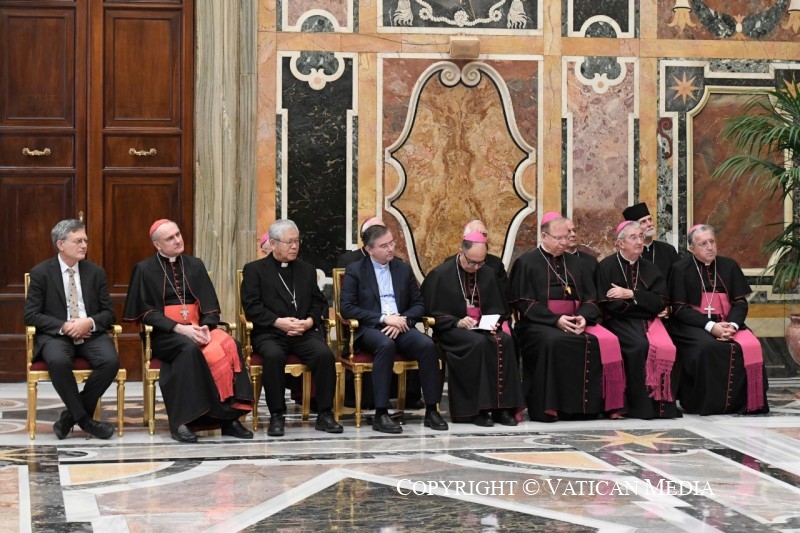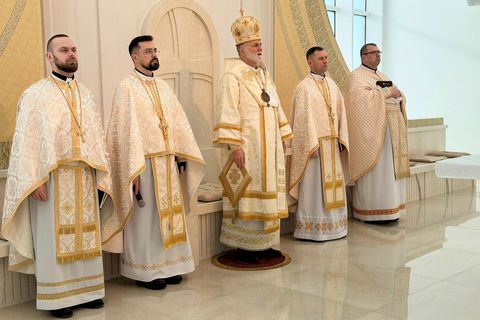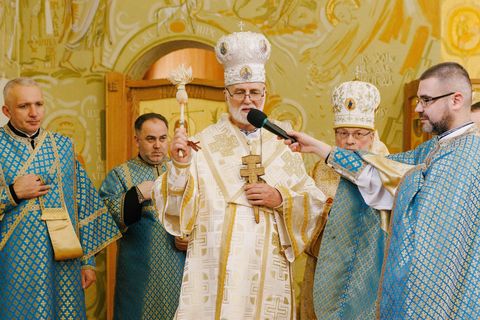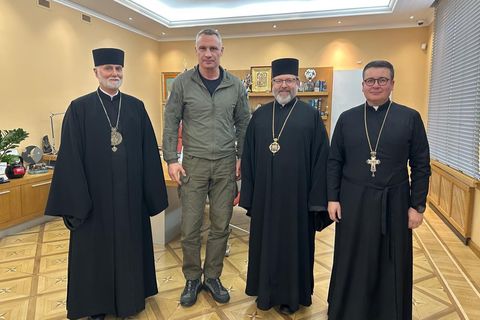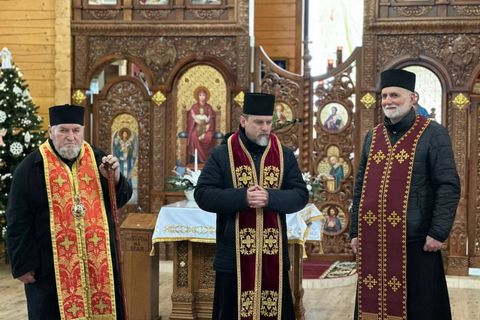Metropolitan Borys Gudziak Attends Dicastery for Communication’s Plenary Assembly
From October 28 to 30, 2024, Metropolitan Borys Gudziak, Archbishop of the Philadelphia Ukrainian Catholic Archeparchy and a member of the Dicastery for Communication, participated in the Plenary Assembly titled “For a Constitutively Synodal Communication.”
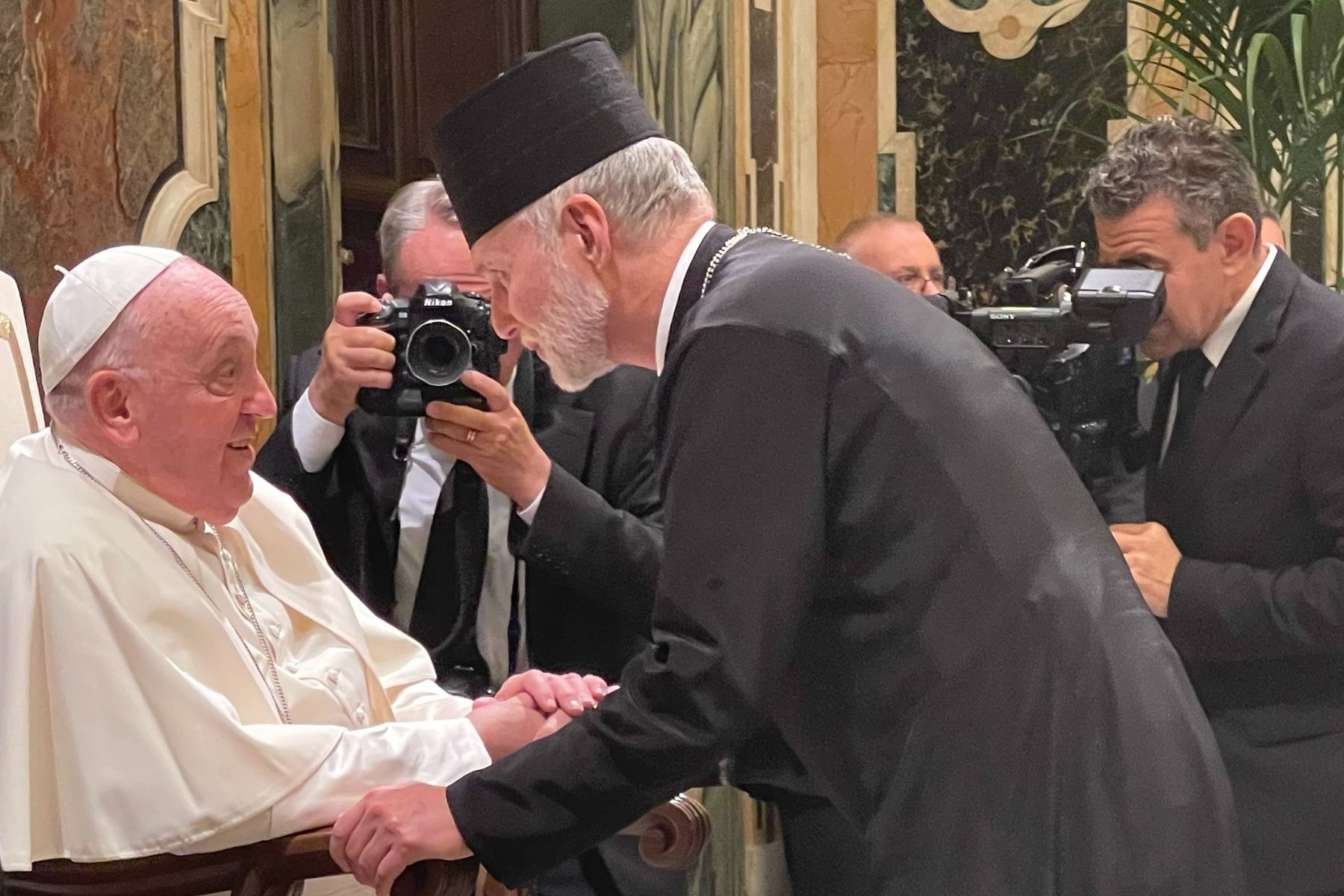
The event, held in the Sala Bologna of the Apostolic Palace in Rome, brought together cardinals, bishops, clergy, religious, and lay communication experts to discuss how the Church can effectively communicate its message in a rapidly evolving world. The assembly concluded on October 31 with an audience with Pope Francis, who emphasized the Church’s role in fostering unity and communion through communication.
Reflecting on the Dicastery’s significance, Metropolitan Borys highlighted its unique role as the largest Vatican dicastery, with over 580 staff members and a reach spanning 53 languages. “It’s impressive that the Catholic network of 1.3 billion people and the people of goodwill who follow the Church are served by this central organism that works globally,” he said. The Dicastery’s responsibilities include managing Vatican Radio, L’Osservatore Romano (published in seven languages), a television studio, Vatican News, the Vatican News Agency, and other key media platforms. According to Metropolitan Borys, this extensive network enables the Church to connect with people from diverse cultural and linguistic backgrounds worldwide.
The plenary assembly functioned as a “board meeting,” with discussions involving members from various fields, including specialists in communications. “The meetings of the Dicastery for Communications for me are extremely interesting because they bring in frontline specialists in and outside the Catholic Church,” remarked Metropolitan Borys. Experts addressed significant technological and ethical challenges in modern communication, with particular focus on artificial intelligence (AI). Professor Divina Frau-Meigs, a UNESCO consultant on AI, provided insights into the potential and risks of AI in media. “It’s getting ten times stronger every year,” noted Metropolitan Borys. “There are serious concerns about how this tool can be misused, as all tools can be, but there are also great opportunities.” Professor Frau-Meigs suggested that the Dicastery could play a vital role as a guarantor and promoter of ethical, conscious communication in the future. Chris Anderson, the owner of TED Talks, was also invited to speak on the power of storytelling and generosity.
Addressing the assembly on October 31, Pope Francis encouraged Catholic communicators to become “bridge-builders,” uniting people through the power of words and media. He framed this vision within the Church’s theology of communion, which emphasizes unity and relationships. The Pope also acknowledged the financial challenges the Dicastery faces, calling for a thoughtful approach to resource management.
“It was good to be with followers of Christ who are helping through communications to lead others to the Lord,” said Metropolitan Borys. He described the Dicastery’s work as exemplifying “the best of the old school in terms of language capacity and cultural sensibility,” while also meeting the needs of a modern audience that includes both regular churchgoers and those who may feel distant from the Church. “The big question before us is, will Catholics rise to the occasion, critically assess these challenges, and creatively respond?” he reflected, emphasizing the urgency to adapt communication strategies for new audiences, including those on society’s margins.
After the plenary, Metropolitan Borys visited Vatican Radio, where he gave interviews in Ukrainian, English, and Italian. The visit allowed him to witness firsthand the dedication of Vatican communicators.
ukrcatholic.org